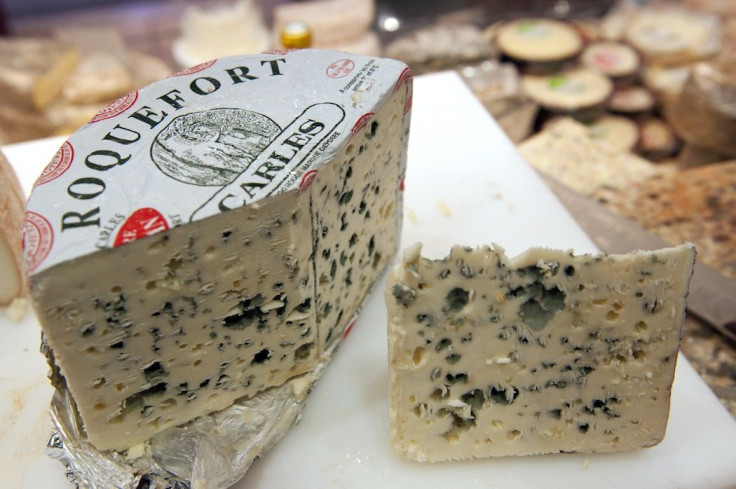Eating Cheese Prolongs Life, "French Paradox" Study Suggests

Eating cheese, particularly moldy, old, smelly, blue Roquefort cheese, may be the secret to living a long and healthy life, a new study suggests.
Scientists recently discovered that the rich, tangy cheese, known for its moldy turquoise-colored veins, had specific anti-inflammatory properties that could help protect people against cardiovascular disease.
Researchers at Lycotech, a biotech company in Cambridge, England, believe that their latest findings could provide clues to the "French paradox" and explain why people who live in the Mediterranean country enjoy good health despite consuming a diet high in saturated fat.
Researchers said that the "French paradox" phenomenon was originally attributed to the consumption of red wine, which contains resveratrol, a naturally occurring ingredient believed to have anti-cancer and anti-inflammatory effects. However, recent studies found limitations of this link, after research revealed "that consumption of red wine alone cannot explain the paradox," researchers wrote.
Using new technology, researcher found that the anti-inflammatory properties were most pronounced when the cheese ripened. Researchers explained that the properties of the blue cheese, which is aged in caves in Southern France, were found to work best in the body's acidic environments like the stomach lining or the skin surface.
Researchers say that the a process that occurs as cheese ripens, also contributes to a healthy gut and helps slow arthritis and physical signs of aging like cellulite.
The team of scientists led by Dr. Ivan Petyaev and Dr.Yuriy Bashmakov, said that the recent finding suggests that properties of Roquefort cheese could be extracted to develop pharmaceutical or beauty products that combat heart disease and aging.
"The anti-inflammatory factors found in these cheeses could be extracted and used independently or as a part of today's pharmaceutical or beauty products," researchers said in a statement. "Moreover, there is a growing consensus that sub-clinical inflammation is behind many aging processes, from the loss of skeletal muscles and cellulite to metabolic, cardiovascular and cerebrovascular diseases."
"We hypothesize that cheese consumption, especially of molded varieties, may contribute to the occurrence of the 'French paradox,'" researchers wrote in the study published the journal Medical Hypotheses.
"Molded cheeses, including Roquefort, may be even more favorable to cardiovascular health," they added.
Published by Medicaldaily.com



























